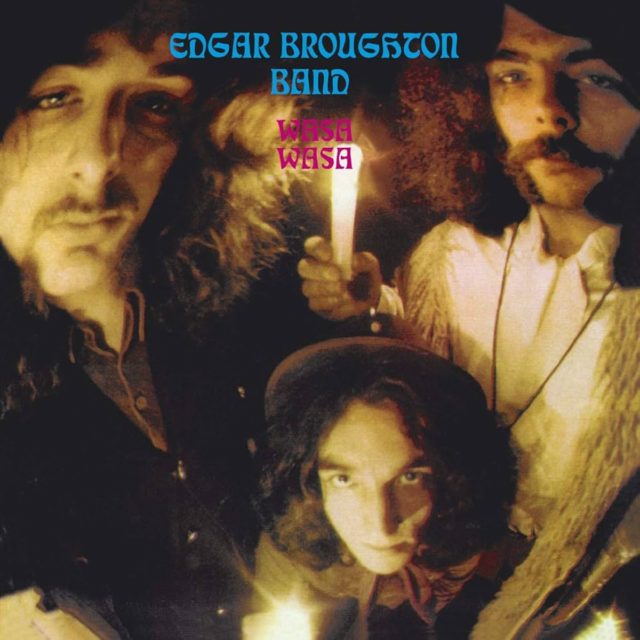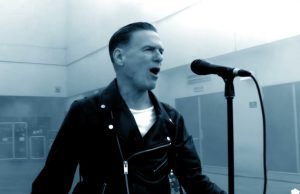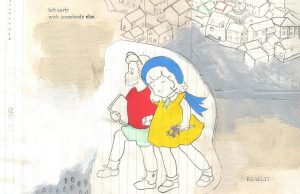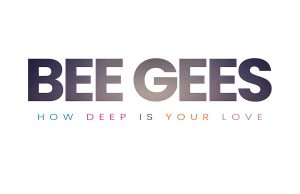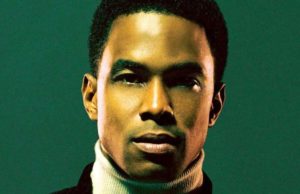 The Harvest Records label is iconic to me because I’ve been a Pink Floyd fan since I was around 15 years old. The logo is pretty distinctive, designed to look like a harvest moon over a valley. As a kid, I always thought it looked more like a bit of Corn Pops cereal being dropped into someone’s ear.
The Harvest Records label is iconic to me because I’ve been a Pink Floyd fan since I was around 15 years old. The logo is pretty distinctive, designed to look like a harvest moon over a valley. As a kid, I always thought it looked more like a bit of Corn Pops cereal being dropped into someone’s ear.
It was Floyd’s label, Syd Barrett‘s too, and a bunch of cool bands because it was set up in 1969 to be the experimental brand of EMI. So The Move were on there, Deep Purple, Soft Machine and others. That said, I still don’t understand how Little River Band ended up on there.
Anyway, today I found one I’d never heard of before — Edgar Broughton Band. I snagged their 1969 debut album called Wasa Wasa for $20.
There’s a Floyd / Barrett connection — the album was produced by Peter Jenner, who had been Floyd’s co-manager with Andrew King via Blackhill Enterprises. When Wasa Wasa came out, Jenner was in the midst of trying to coax Barrett’s first solo album out of the troubled songwriter — something he eventually gave up on and turned over to Malcolm Jones, and later to Roger Waters and David Gilmour. The Madcap Laughs finally was completed and released in February 1970, after being started in May of 1968. Wasa Wasa dropped in July ’69.
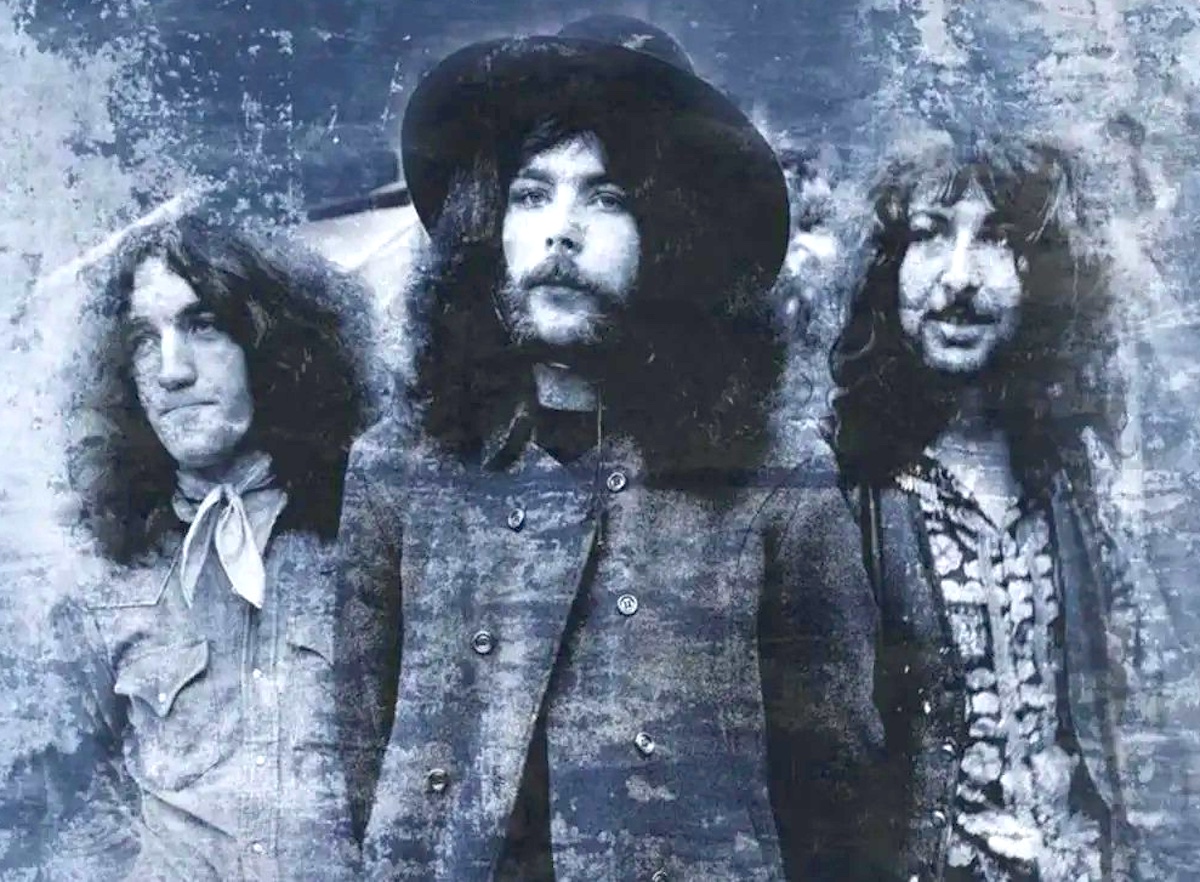
The Edgar Broughton Band, like The Steve Miller Band, used to have a “Blues” in their title: The Edgar Broughton Blues Band. But those bands got to be old hat around 1968 and the trio — brothers Edgar and Steve on gtr/vox and drums respectively, along with Arthur Grant on bass — started making considerably more psychedelic music and moved to London from Warwick in an effort to get signed.
Success! Jenner liked them and Blackhill got them signed to the fledgling Harvest label in December ’69. In fact, their single Evil was the first single issued on the label, in June 1969. It’s like Captain Beefheart with ripped pants or Howlin’ Wolf on acid.
Initially, I was excited to get the album. But after giving it a couple good listens, I’ve come to the opinion that it is rather annoying and overboard.
The opening track Death Of An Electric Citizen has a plethora of problems — it is mixed horribly, for starters. The drums are on one side, too low in the mix and flat. The bass is way too loud, too busy, kinda shitty and mixed hard to the opposite side. There is absolutely nothing swinging about it. The guitar is constantly noodling — with that fuzz tone that ’60s pop groups used for accents. The vocals and lyrics are awesome, though — like, totally Beefheart / Howlin’ Wolf, right down to the “ahh-wooo-hoo” calls. But, at 6:09, the track goes on about three minutes too long.

American Soldier Boy comes next. It’s more like a political skit based on a supposed interaction between a U.S. Army recruiter and an American teen. The band have clearly been listening to The Mothers Of Invention, as it is a slow doo-wop. It doesn’t take long to get on your nerves.
OK, so the third song — Why Can’t Somebody Love Me? — starts out promising, with a simple descending riff. However, they somehow can’t manage to get tight. It sounds like 14 year olds in the basement. Five goddamned minutes of this.
On Neptune, the drums are saturated in phaser effect. Again the guitar is constantly noodling and off to one side, with rambling, hollering, harmony-free, prose-like vocals off to the opposite side. It’s bloody loathsome. It’s a bad attempt at Arthur Brown — except Brown’s band (Atomic Rooster) cooked. This is an awkward death march in wet, bad shoes.
Side 1 wraps with the single Evil. It’s great but annoying. There’s not enough balls to it. I realize much of that is on Jenner, but I don’t see how this would be any better live. It’s actually interesting to read about the band’s live shows. They’d do things like hand out cans of paint to the audience, who — likely high as kites — would make a fuck of a mess. The band would defend themselves by saying, ‘We gave them paint, but we didn’t tell them to use it.’ Because of stunts like this — and fistfights in the audience — they got banned from playing in many venues.
Crying opens Side 2. The music is a two-chord thing, just going back and forth in a pattern similar to My Generation. But with no swing at all, and all the time the goddamned vocalist just hollers on and on about who-cares-what. He sounds like a dumbass who fancies himself a poet-spectacle. Again, reminiscent of Arthur Brown, but mixed with a drunk Jim Morrison like you hear on that Woke Up This Morning And Found Myself Dead bootleg:
Love In The Rain is next. This song is essentially a ripoff of the outro of Purple Haze, with more hollering vocals. It’s stupid and incredibly boring.
Finally, the album wraps with the 14-minute Dawn Crept Away. More spoken-word skit stuff before it launches into an awkward, discordant, hollering piece of shit. There are some quieter bits that feature more talking and drama — like, trying to be Nobody Likes Me or Dwight Fry-era Alice Cooper. To be honest, by this point I have no patience anymore. These guys are trying too hard to be freaky. Maybe they’re overcompensating for their lack of ability — certainly on vocals and bass. But it just doesn’t work.
It wasn’t always this way. The band made five albums for Harvest between 1969 and 1973. Their self-titled 1971 album is considerably more melodic. Their debut single Out Demons Out, which predates Wasa Wasa, is actually great.
If ever there was a Spotify band, it’s these guys. You only need one song, and it’s Out Demons Out. Wasa Wasa is nothing more than a curiosity. My copy is for sale, if you want it.
2/5
• • •
Area Resident is an Ottawa-based journalist, recording artist, music collector and re-seller. Hear (and buy) his music on Bandcamp, email him HERE, follow him on Instagram and check him out on Discogs.













